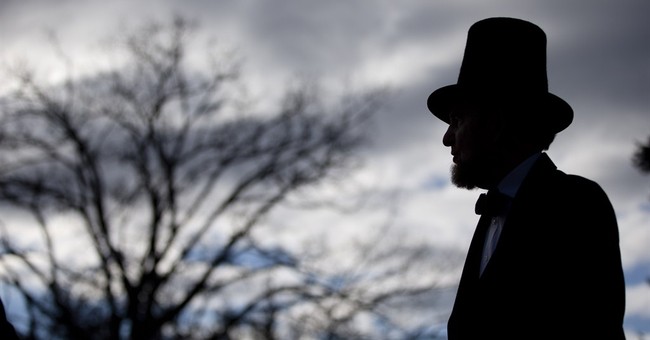
Posted on 04/14/2014 6:49:47 AM PDT by Kaslin

"Character is like a tree and reputation like a shadow. The shadow is what we think of it; the tree is the real thing." ––Abraham Lincoln
The 149th anniversary of the assassination of Abraham Lincoln provides an appropriate opportunity to appreciate the character of the man beyond the customary veneration afforded by his memorials in statuary, currency and the names of thousands of streets and commercial institutions. He was, in his own words, “the real thing.”
This was a man of humble origins whose determination and perseverance led him to the highest office in the land. At no point in his life did he permit obstacles or challenges to sidetrack his sense of duty to his country or his drive to realize his great vision for it.
This is the man who, as president, faced the severest internal crisis in our nation’s history, while simultaneously juggling external diplomatic relations to avoid foreign interference in our civil war. In both efforts he triumphed. His fierce belief that ultimate sovereignty cannot be inherent in both the federal and state governments—never once waivering from the idea that federal authority supersedes state authority—continues to guide legislation and constitutional interpretation.
This is the man foresighted and shrewd enough to tackle the thorny issue of slavery not head-on, but obliquely, understanding from the outset the existential threat it posed to the Union. His legacy, burnished by the Emancipation Proclamation and the Thirteenth Amendment, arose from a fundamental comprehension that it was “a great moral wrong.”
This is the man who brilliantly and ultimately successfully managed (some of his generals would have said in today’s parlance “micromanaged”) the strategy and execution of a mammoth war machine dedicated to the preservation of the union. As commander in chief he provided a brilliant blend of encouragement, compassion and practicality that outlasted political quibbling and intransigence.
This is the man who nevertheless found time to be a devoted father and husband, despite the debilitating grief afforded by the death of his young son and the endless challenges to his patience by his erratic, spendthrift wife. This same compassion extended to his pardoning of condemned military men as well as to the vanquished South, of whom he entreated his cabinet and generals, “Let ‘em up easy.”
That all must be a peculiarly southern thing. I never heard of anyone getting chucked onto a chain gang by a “white trash courthouse crowd loungers and ne’er-do-wells” anywhere else. Nor sheriffs simply murdering children walking along the road. And this is Lincoln’s fault how? By abolishing slavery?
But don't believe me, look it up.
I didn't know about this racket, which was practiced in three or four of the original seven seceding States, until about 12 years ago, when the book came out.
Caution about the source: Notice here,
http://www.historyisaweapon.com/defcon1/gilmoreprisonslavery.html
that the author of the article refers to "historians and activists", which means that he recognizes that an active political campaign is at work aimed at recovering voting rights for convicted (black) felons, presumably so they can vote down white America and turn it into a Gulag of a new kind -- "bottom rail on top now" as the emancipated slave taunted his former master, then a prisoner of war.
So some of the information is correct, but we should regard the source as tainted and motivated, not to mention mortally hostile.
Still, a state-level southern thing for which you apparently blame Lincoln.
Rest in Pieces, Confederacy.
Bloody Illinois Butcher Bump.
Think about it, genius.
You four-flushing blackguard! You think Washington or Madison would have supported your rebellion? Washington would have led the charge to kick your treasonous butts.
Excellent point. Their heritage made the actions of the insurrectionists even more repugnant.
Better luck next time.
And don't get out on that limb about what James Madison would or wouldn't have done. He was a Virginian, too, and those blackleg bankers in New York and Bahstin and their boy Hamilton were acting just like the royal governors and tax collectors whose asses we had kicked in the first place.
Madison recognized the problems of federal power, and so did Jefferson. Five years after the Whiskey Rebellion, they wrote the Kentucky Resolution and the Virginia Resolution, where the idea of some sort of State interposition against federal abuses was first raised.
"State" and "People" were the same thing to Democratic Republicans like Jefferson back then, and the People were the Sovereign. Federalists had a simpler view: "We are the Sovereign; we own everything and everybody. Now run along and play."
There. That help any?

Always the klown, aren’t ya lentil?
Disclaimer: Opinions posted on Free Republic are those of the individual posters and do not necessarily represent the opinion of Free Republic or its management. All materials posted herein are protected by copyright law and the exemption for fair use of copyrighted works.